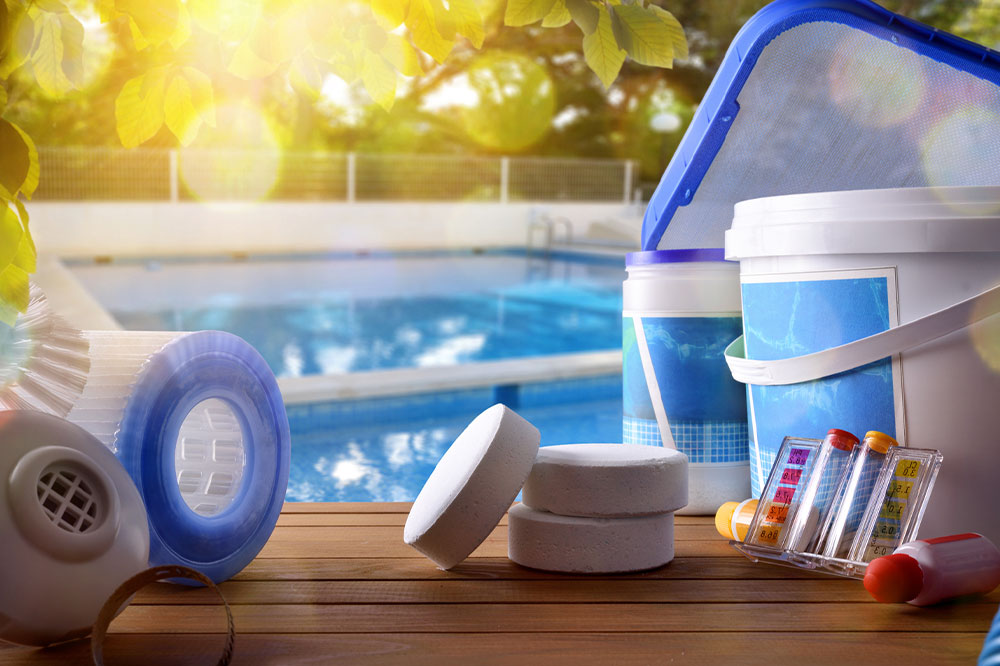4 mistakes to avoid while maintaining a swimming pool

Most people with a backyard pool tend to have at least half their summer plans involving pool parties, lounging by the pool, late-night swimming, and so on. However, swimming pools can get filthy and algae-infested if not taken care of, and your friends and family will need to give any pool parties at your place a miss. To avoid that from happening, here are some costly mistakes to avoid when maintaining a swimming pool.
4 basic pool care mistakes that can prove costly
Not cleaning the pool after pet use
While pets are a part of the family, they also run the risk of carrying a high level of contaminants. In most cases, an average-sized dog carries three times more contaminants than humans. Furthermore, leaving pet hair or dander inside the pool can cause changes in the chemical level of the pool and even clog the filters. Hence, experts suggest treating the pool with water clarifiers after pet use. This can help break down the oils and pollutants in the water and ensure a clean pool.
Not brushing the pool regularly
In addition to vacuuming the pool regularly to avoid gunk and scum build-up, one must also brush it clean. One may vacuum the pool either manually or automatically, but they must use a good quality pool brush and regularly clean all the hard-to-reach areas. This can include corners and crevices, the waterline, behind the ladders, and the stairs. This ensures the complete removal of algae and other scum from the pool surface.
Ignoring cracks in the pool surface
Resurfacing a pool comes with its share of expenses; hence one must avoid making the costly mistake of ignoring any signs of breakdown in the pool surface while caring for it. This can include broken tiles, flaking, chipping, discoloration, or even rusting. Furthermore, one must constantly monitor the condition of the pool liner. This means that special attention must be paid to the vulnerable parts of the liner, such as corners, drains, steps, lights, and even filters.
Ignoring the pH levels and alkalinity of the pool
In order to ensure a healthy ecosystem, one must maintain balanced pH levels in the pool. Moreover, an imbalanced pH can cause damage to pool equipment. Hence, experts suggest testing the pool regularly to test the pH levels and using a pH increaser to maintain the perfect balance.



